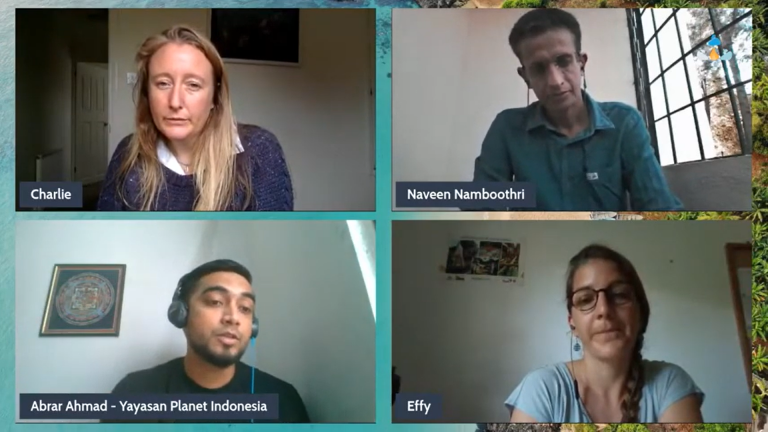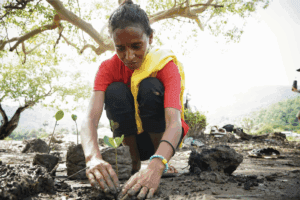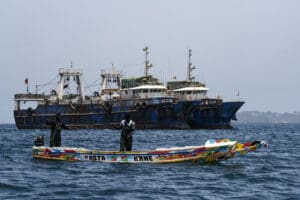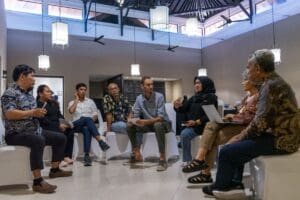The latest edition of our Toko telo interactive online discussions welcomed an expert panel providing an insight into the importance of community-led fisheries management across different contexts. This edition launched a new series of global conversations about the successes and challenges of community-led fisheries management which are being convened over the coming months.
Chair, Charlie Gough, technical advisor fisheries management and conservation at Blue Ventures, was joined by Dr. Naveen Namboothri from the Dakshin Foundation in India, Misbahou Mohamed from Dahari in Comoros, Effy Vessaz of Blue Ventures Comoros, and Abrar Ahmad from Planet Indonesia in Indonesia in a lively panel discussion.
The panelists shared their experiences of community-led fisheries management in their work as conservationists in their respective countries. All three were encouraged to speak specifically about the successes and challenges of community-led marine management and the management measures that communities are leading.
The panelists agreed that involving communities from the inception of programmes is key to implementing long-term sustainable marine management. This approach ensures buy-in and ownership of the methods by the community. Dr. Naveen Namboothri from the Dakshin Foundation talked about live-bait pole and line tuna fishery and community-led fisheries management in the Lakshadweep Islands. He noted that “involving the community takes longer, there are no shortcuts you need to build up trust, confidence, and capacity.”
Misbahou Mohamed from Dahari and Effy Vessaz of Blue Ventures talked about the importance of engaging with community members and leaders. For example, in Comoros influential female fishers were instrumental in reducing harmful fishing practices amongst their peers by encouraging a switch from metal fishing rods tsontso to less destructive, wooden rods mwiri. Most fishers in Comoros were using metal rods when fishing, which damaged coral. It was reported that 40% of fishers in Comoros are using mwiri.
Abrar Ahmad from Planet Indonesia spoke about his experiences in community-led Mud-Crab Fisheries Management in Kubu Raya, West Kalimantan, Indonesia. He explained that small changes in management can provide ‘gateway methods’ to get communities interested in taking an active role in conservation. He gave the example of introducing mud crab traps with bigger holes to allow juvenile crabs to escape, but trapping the mature crabs – this has increased the mud crab population.
All panelists talked about the need to be on equal footing with the community they are working with; understanding and respecting what communities and partners can bring to the table. All of the panelists agreed that listening to the needs of a community is the vital first step towards catalysing effective community-led fisheries management and marine conservation.
The panel session was followed by break-out discussions where the audience had the opportunity to ask questions to the panelists and share their own experiences with community-led fishery management. Notes from these discussions can be found below.
Watch the Toko telo session from Wednesday 26th May 2021: Does community-led fisheries management work?
View the panel presentations
Read the outputs from the workshop
Find out more about more Toko telo sessions coming up




















